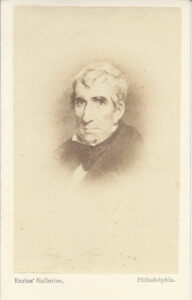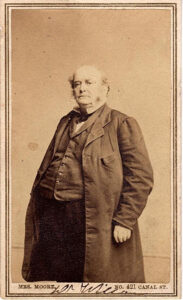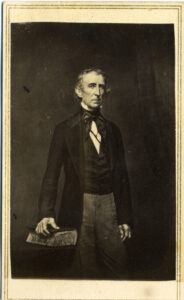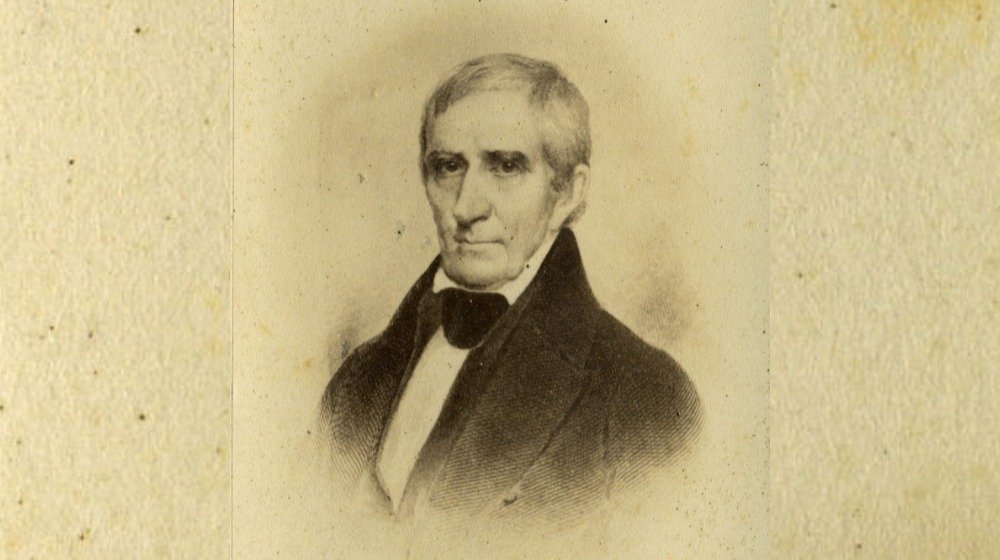April 4, 1841: America’s First Whig President, William Henry Harrison. Dies After One Month In office
You are there: Thirty-one days after his inauguration President William Henry Harrison dies suddenly in the White House at age sixty-eight, thereby causing a constitutional dilemma on succession and a policy crisis for the Whig Party.
Despite his campaign profile as a “log cabin and hard cider man of the west,” Harrison actually grows up on the 1,000 acre Berkeley tobacco plantation on James River in Virginia. Like Andrew Jackson, his early fame traces to military exploits, mainly against native tribes in the Northwest Territory. In 1799 he resigns from the army and wins a seat in the U.S. House. He becomes the first Governor of the Indiana Territory where he tries to reintroduce slavery. In 1811 he wins the Battle of Tippecanoe and in 1812 defeats Tecumseh at the battle of Thames. As Henry Clay launches his Whig Party in the 1830’s, Harrison has retired from his Senate seat (from Ohio) to raise horses and distill spirits. But the new party finds his “war hero” reputation sufficient to earn him the presidential nomination in 1840, and he defeats Martin Van Buren in a landslide.
Then 31 days into his term he is dead. Some attribute his death to pneumonia caused by his refusal to don winter dress during a nearly two hour inaugural address. Some suspect typhoid fever, the result of drinking salmonella polluted water piped into the White House from the Potomac River. Others point toward malpractice by Harrison’s Dr. Thomas Miller who doses him with laxatives, opium and a series of enemas which weaken his natural defense systems.
Whatever the cause, Harrison is the first President to die in office and this triggers controversy over his successor. Some argue that the Constitution calls for the Vice-President to “act in his place” only momentarily, until another election can be held. But John Tyler immediately claims his right to serve out the full term, and his boldness prevails.
Tyler is a Virginia aristocrat and slave-holder whom the Whigs add to the ticket (“Tippecanoe and Tyler too”) without much consideration for his politics. Once in office, he proves to be a strict Jeffersonian constructionist and vetoes Whig initiative to raise tariffs, invest in infrastructure, or sanction a U.S. Bank. Henry Clay quickly sees Tyler as the enemy and the Whigs refer to him as “His Accidency” before expelling him from the party in September 1841. But they cannot expel him from the White House and his term sets the Whig’s “American System” agenda back by a decade.



